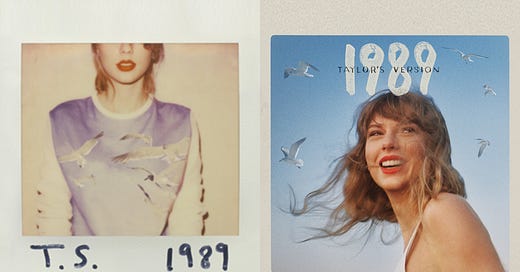Look What You Made Me Do: Taylor Swift’s Fight for Her Creative Legacy
By Justyna Piątek-Pawłowska
If you’re a Taylor Swift fan or follow music industry news, you probably know that for the past two years, the pop star has been rereleasing her old songs, each time adding “Taylor’s Version” to the titles.
Artists releasing old music with new arrangements is nothing new. However, Swift’s strategy is not a savvy marketing move that gets her out of writin…
Keep reading with a 7-day free trial
Subscribe to The Objective Standard to keep reading this post and get 7 days of free access to the full post archives.




